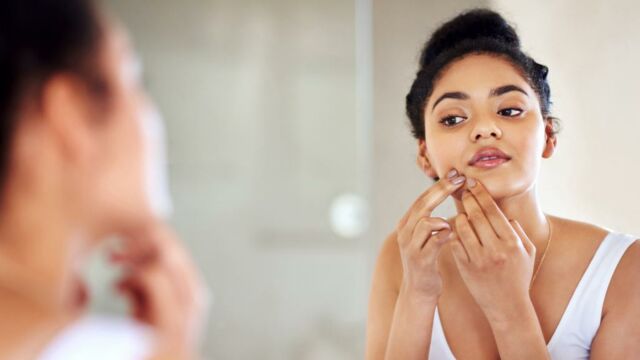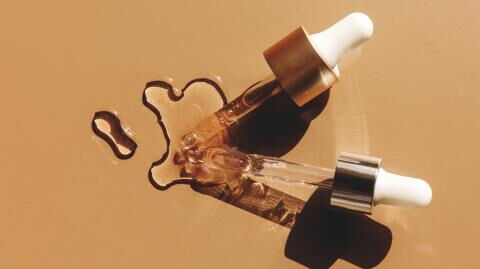Anyone that’s suffered from a bad breakout has inevitably tried some DIY interventions. But, a lot of the acne knowledge passed on by parents, the internet and our high school classmates simply isn’t true, and some myths can even make the problem worse.
Discover our latest podcast
1. You need to wash your face more
Contrary to popular belief, acne isn’t caused by dirty skin, so washing your face more won’t do much to help you. In fact, washing your face more than twice a day can be really drying to the skin, resulting in irritation and an overproduction of sebum - potentially leading to more acne.
2. Toothpaste can get rid of acne
Using toothpaste on your acne dries out the skin, making the spots seem smaller. However, the fluoride in toothpaste can make acne worse. Instead, opt for a spot treatment containing salicylic acid or benzoyl peroxide or even better, try micro-dart patches!
3. You should pop your pimples to get rid of them
While it can definitely be satisfying, popping pimples can cause inflammation, acne scarring and even introduce more bacteria to the spot. So, even when your pimples are looking ripe for the picking, it’s best to leave them alone.
4. Pores can open and close
We’ve all heard that steam can help open the pores while cold water can close them; however, this isn’t true at all. Pores can’t actually open or shrink, but steam will help to loosen the oils and debris caught up inside.
5. Junk foods cause acne
Many people believe that indulging in a little too much greasy or sugary foods can cause acne. But, there is little to no evidence that food alone causes breakouts. So, feel free to enjoy your favourite foods in moderation.
6. Makeup causes acne
Makeup alone doesn’t cause acne, but some ingredients in cosmetics can irritate some people’s skin. Also, make sure you wash off your makeup at the end of the day with a double cleanse. Otherwise, leftover makeup may build up and clog the pores - not to mention it’ll get all over your pillowcases!
7. Acne only affects people with oily skin
Acne is caused by excess sebum and dead skin cells clogging the pores. However, it’s not just oily skin types that develop acne; even dry, normal, and combination skin can suffer from breakouts.
8. The sun will clear up your acne
UV exposure is damaging to the skin and can cause irritation, inflammation and dryness. To compensate, the skin will produce even more sebum, resulting in more acne. Instead, it’s best to use SPF during the day, reapplying every 2-4 hours. This will protect your acne and save your skin from premature ageing and even cancer.
9. People with acne should exfoliate more
Scrubbing at your breakouts can cause inflammation and damage to the moisture barrier, further promoting pimples. Instead, use a chemical exfoliant twice a week. Lactic and glycolic acid are just two of our favourites!
10. Stress causes acne
Stress can’t directly cause acne, but if you already have acne, then stress can make it worse. Research has shown that stress can slow down wound healing, including acne.















